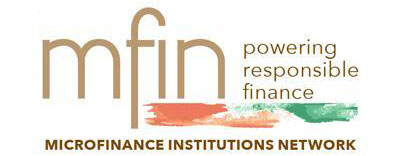TBB BUREAU
BHUBANESWAR, JULY 5, 2021
It has now been over two decades that the Microfinance industry has been helping women from the low income and under-served groups with access to collateral-free easy credit. A lesser-known fact is how microfinance institutions stand by the borrower as a strong pillar of support in difficult times and help in the holistic development of the local communities through various interventions. The microfinance industry is playing a crucial role in the skill development of women, and education of children in the rural communities besides working relentlessly towards infrastructure development.
Satin Creditcare Network, along with Nordic Microfinance Initiative organized six ‘Women Financial Empowerment Workshops’ in Odisha, Punjab and West Bengal which focused on several government livelihood promotion and enterprise development schemes, importance of being financial literate. These were attended by over 600 centre leaders. Similarly, Jana Small Finance Banking in association with NABARD Gujarat office, launched a financial literacy awareness drive in March 2021 which was conducted across 27 locations. Ujjivan Small Finance Bank along with Calcutta Social Project provided crafts training for women in Kolkata.
Fusion Microfinance provided livelihood opportunities to 400 individuals, 4 PWDs, 5 ASHA workers and 43 tribal women through face mask production across 17 states who collectively earned an income of Rs. 16,30,000 for producing 2,00,000 face masks.
Arohan Financial Services provided training on livestock management to women borrowers in Jorhat, Assam where as many as 747 women were trained on productivity enhancement in agriculture and scientific livestock management for enhanced income. Similarly, Chaitanya India Fin Credit team at Satara, Maharashtra in collaboration with Government Veterinary Hospitals organised Livestock Health Camps across Akurale, Hargudewadi, Asandoli, Rukadi, Bhodale, Kasaba Tarale, Siddhanerali, Harali and Adkur benefitting 1535 animals avail free treatment and helped 600 households, and 250 farmers to get critical insights on the usage of fertilizers and agriculture knowledge.
Through its Nukkad Pathshala, New Opportunity Consultancy (NOCPL), set-up knowledge centres across villages in Tamil Nadu educating 1,300 students where regular evaluations were conducted to ensure the learning curve continued to grow during these times of uncertainty. In Bengaluru, to promote literacy, Jana Small Finance Bank distributed 50 laptops to five Government schools providing education to 750 children from 25 villages in Devanahalli district. In a ‘Laptop Donation campaign’ Centrum Microcredit refurbished unused or old laptops and distributed them.
Jagaran Microfin introduced a Universal Scholarship Programme for children of borrowers who had passed 10th and 10+2 classes. Further, to promote the ‘Girl Child’, Merit Scholarships were provided to the girls of borrowers. New clothes were distributed to school children instead of uniforms as majority of the schools are operating online.
Ujjivan Small Finance Bank through its CSR partner, e-Vidyaloka supported the digital transformation of classrooms in Dharwad and Tiruvannamalai to reach 20,000 students. Additionally, the entity supported online education of street children in Kolkata in partnership with Calcutta Social Project.
ESAF Small Finance Bank undertook an Integrated Tribal Development Program at Attapadi, Kerala where potable water was a critical concern. A Reverse Osmosis water plant was installed in the Tribal Specialty Hospital which was visited by 800 locals on an average. Similarly, Ujjivan Small Finance Bank launched 10 infrastructure projects including renovation of schools, public infrastructure, bus shelters as part of the ‘Chote Kadam’ initiative undertaken by its CSR partner, Parinaam Foundation.
MFIN (Microfinance Institutions Network) is a premier industry association comprising 58 NBFC-MFIs and 38 Associates including Banks, Small Finance Banks (SFBs) and NBFCs. It is also the Self-Regulatory Organization (SRO) for the regulated NBFC-MFI. By virtue of bringing the NBFC-MFIs under one common umbrella, MFIN acts as a bridge between them and the regulators to build a dialogue for greater transparency, better policy frameworks and stronger client protection standards for responsible lending, thus enabling the microfinance industry to partake in meeting the larger financial inclusion goals.

 The Business Bytes
The Business Bytes
